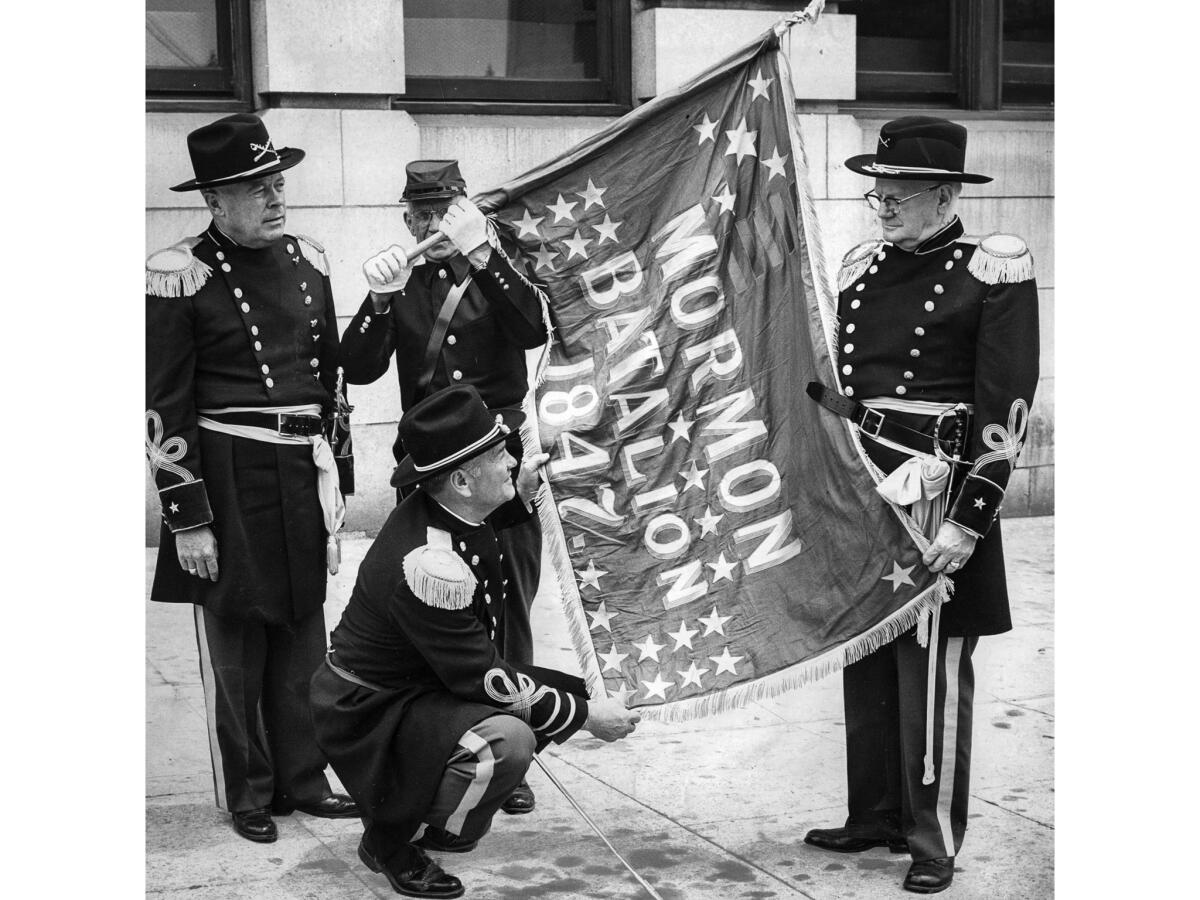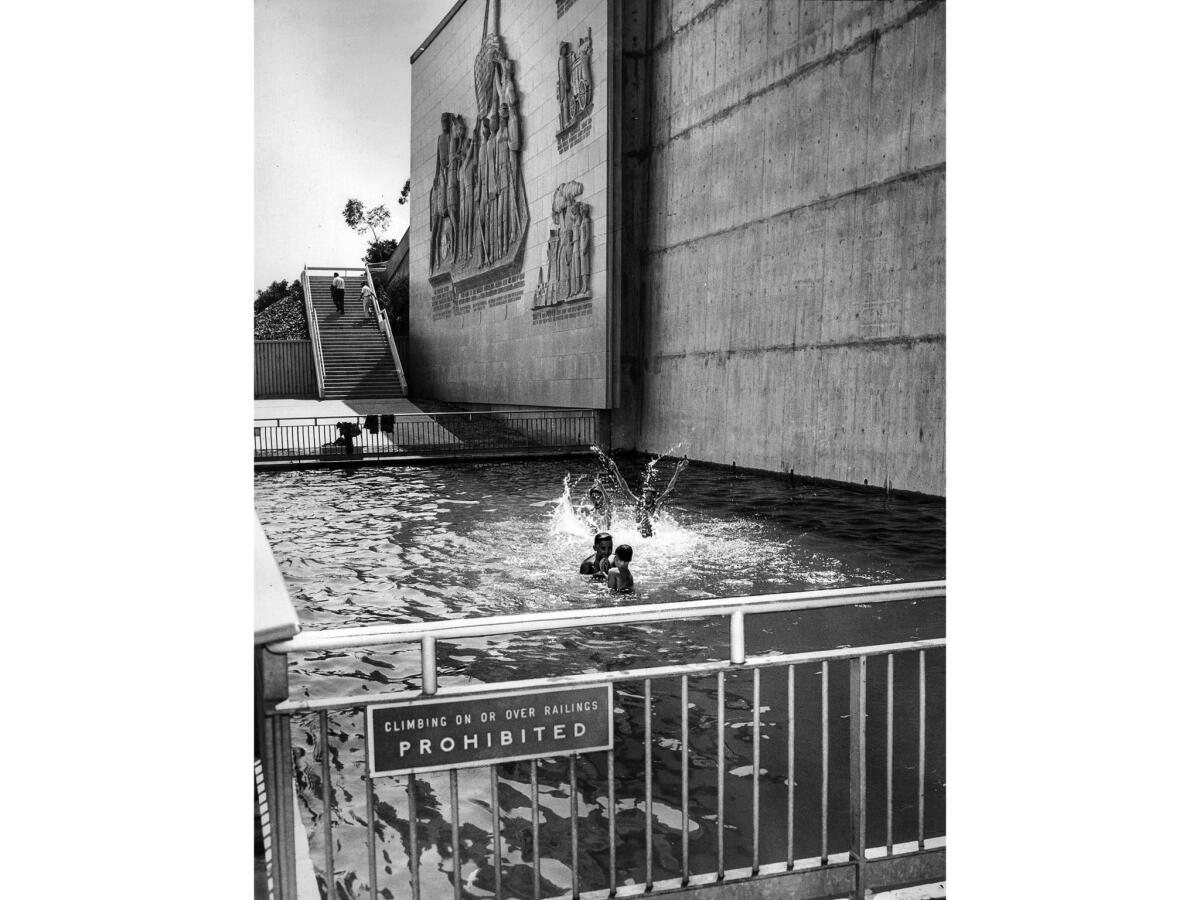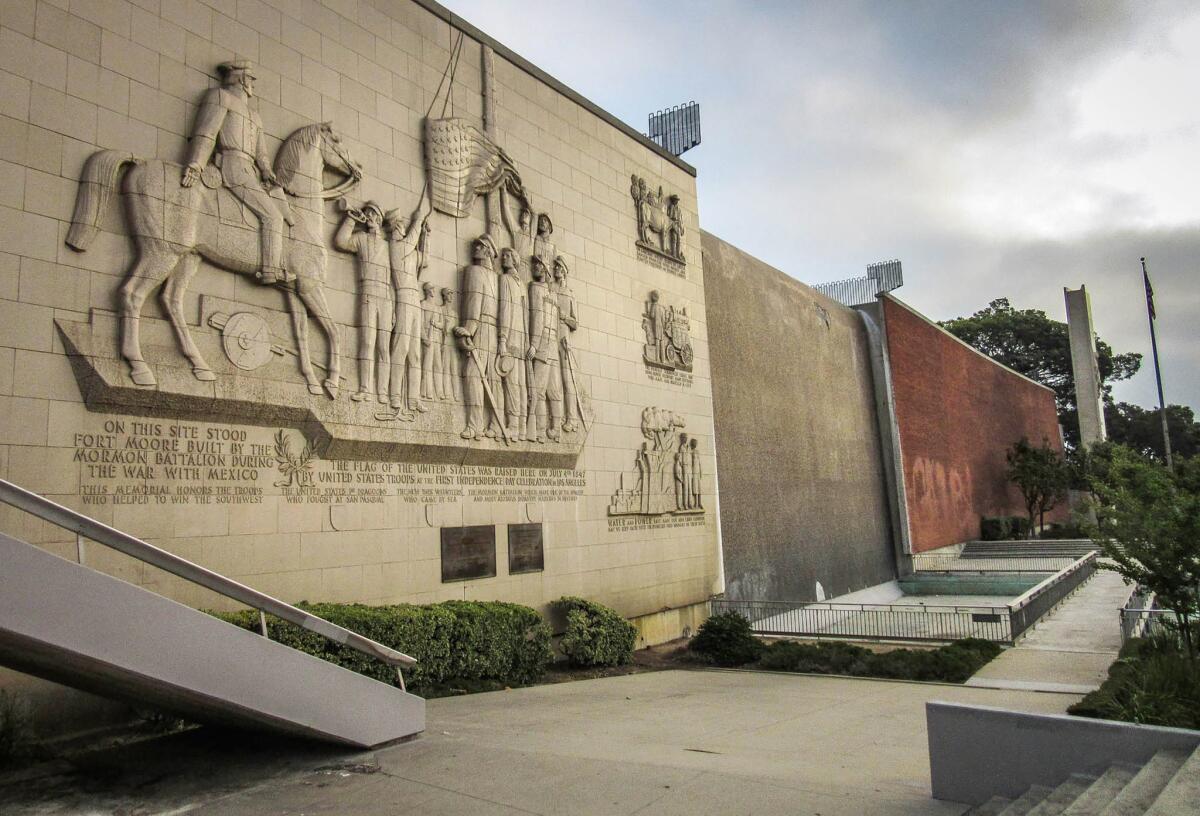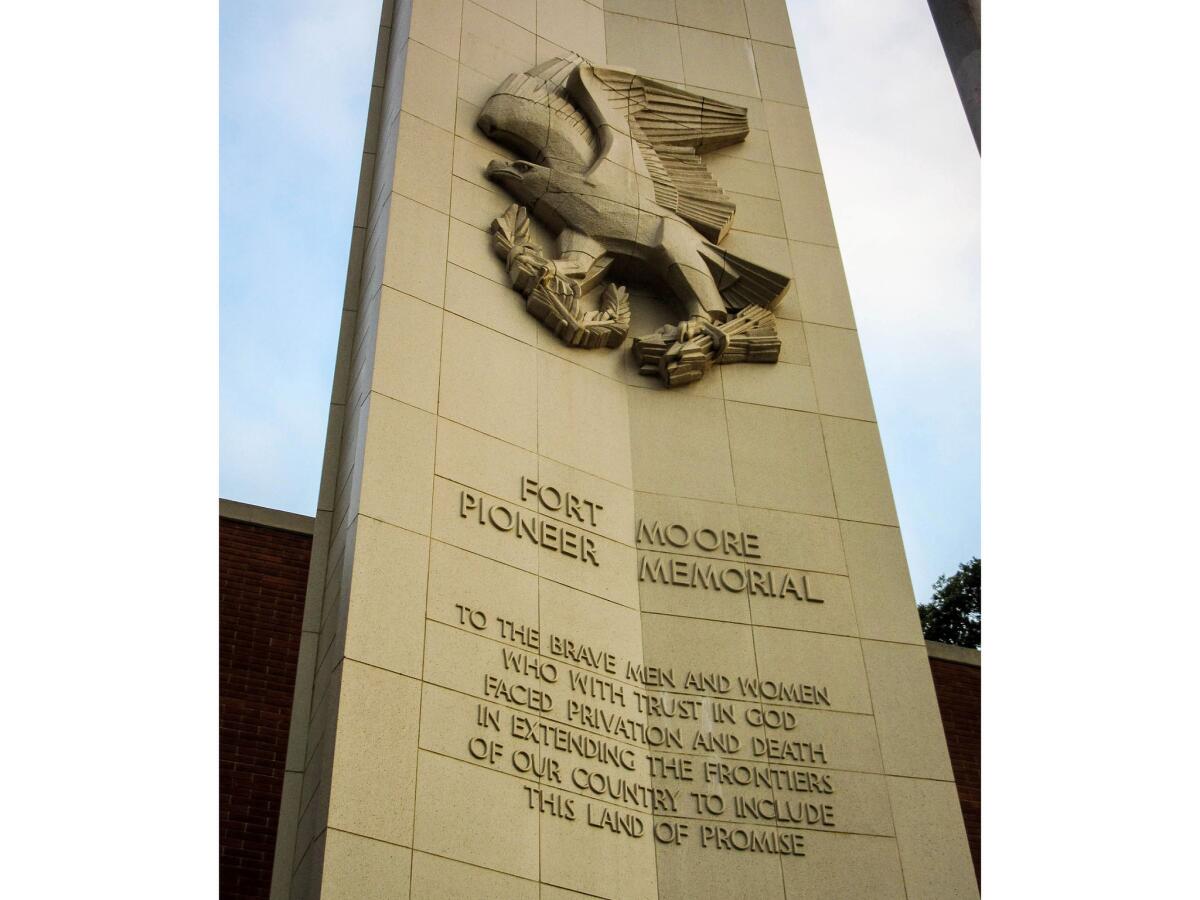From the Archives: Ft. Moore memorial pays tribute to Los Angeles pioneers
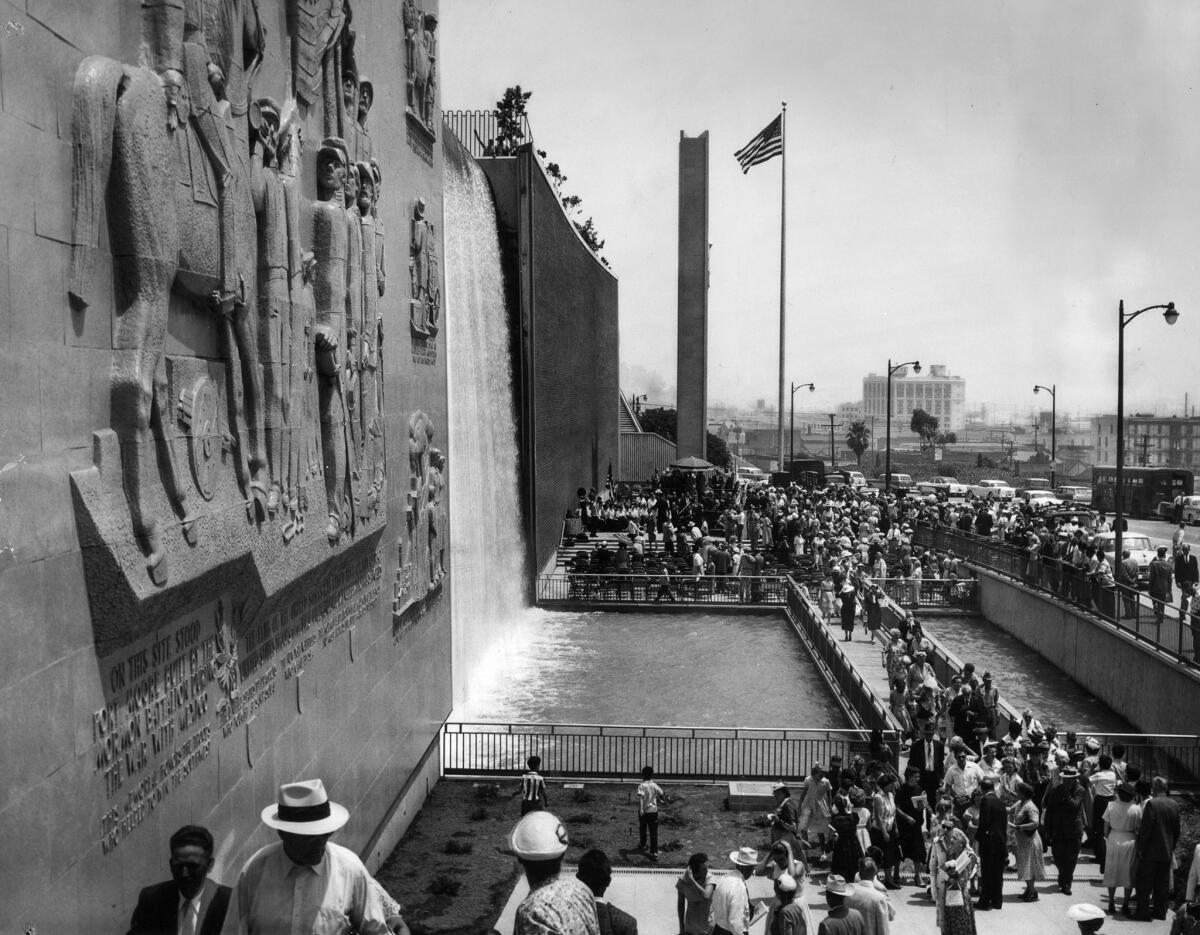
The Ft. Moore Pioneer Memorial is a stone wall honoring the Mormon Battalion, U.S. 1st Dragoons, and the New York Volunteers who raised the American flag on July 4, 1847 â the first Independence Day celebrated in Los Angeles. The city and California became part of the United States following the Mexican-American War.
An article in the July 4, 1958, Los Angeles Times reported:
The cityâs first Independence Day celebration â July 4, 1847 â was recalled yesterday in the dedication of 400-foot-long, 45-foot-high Ft. Moore Pioneer Memorial Wall on Hill St. just north of the Hollywood Freeway.
The Memorial Wall, dedicated âto the brave men and women who faced privation and death in extending the frontiers of our country to include this land of promise,â commemorates Los Angelesâ first Independence Day.
It was in 1847 at the newly constructed Ft. Moore on the hill overlooking the little Mexican pueblo that all American troops in the immediate area â the First U.S. Dragoons, New York Volunteers and Mormon Battalion â gathered to participate in the historic Flag-raising ceremony.
The largest section of the huge bas-relief panel of the Memorial Wall depicts that Flag-raising. Three smaller sections illustrate other aspects of pioneer life.
In addition to the ceramic veneer bas-relief panel, the Memorial Wall features an 80-foot-wide, 47-foot-high waterfall, a 68-foot-high pylon in front of the wall supporting an immense ceramic eagle and a towering flagpole.
Participating in yesterdayâs dedication ceremony of the $373,887 memorial were city and county officials, descendants of members of the Mormon Battalion, members of the Sons and Daughters of Utah Pioneers and the 72nd U.S. Army Band and a color guard from Ft. MacArthur. ...
During the 1976-77 drought, the fountain was turned off and sat empty until 2018.
A Jan. 28, 2017, Los Angeles Times article announced that the Los Angeles County Board of Supervisors set aside money to rebuild the memorial.
On Dec. 13, 2018, in a move that received little fanfare, water in the fountain flowed again after 42 years.
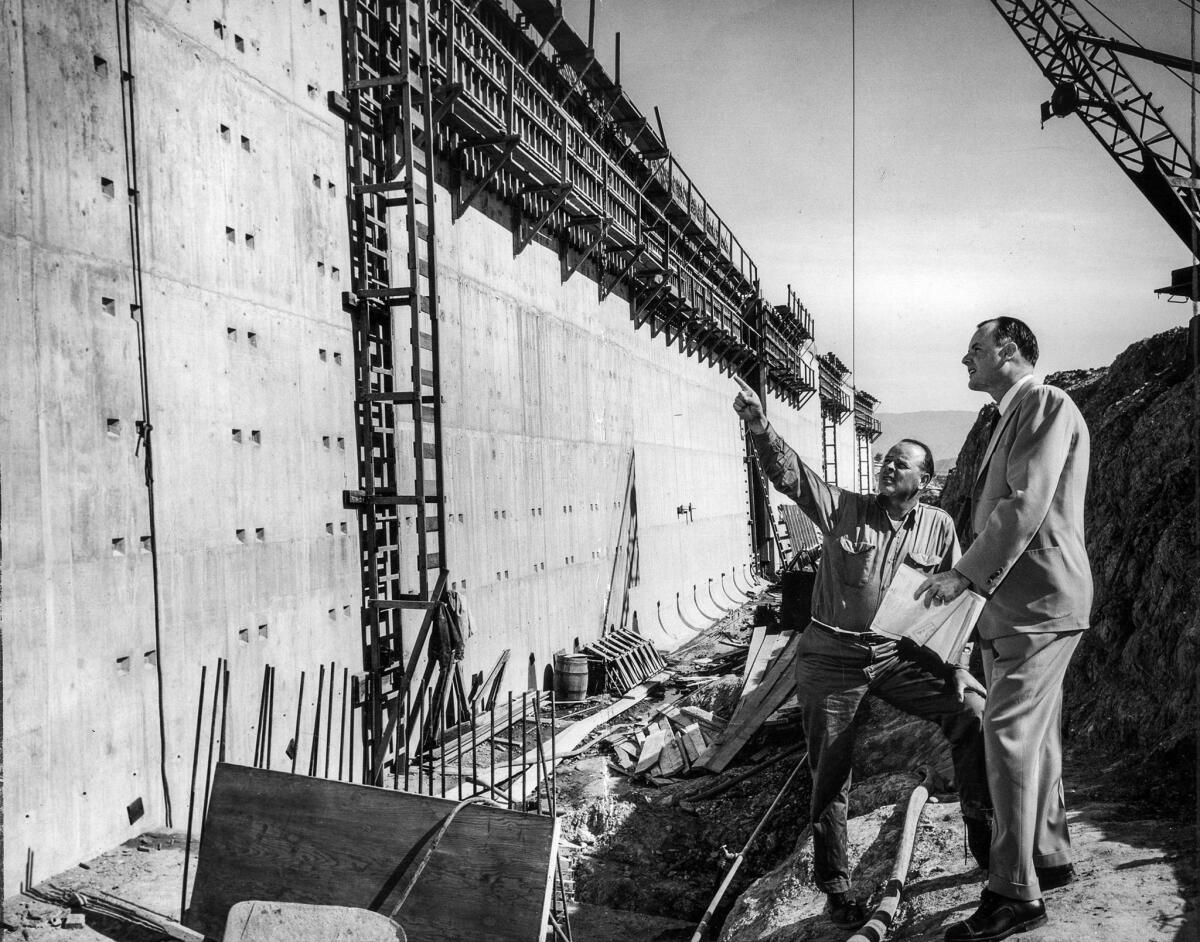
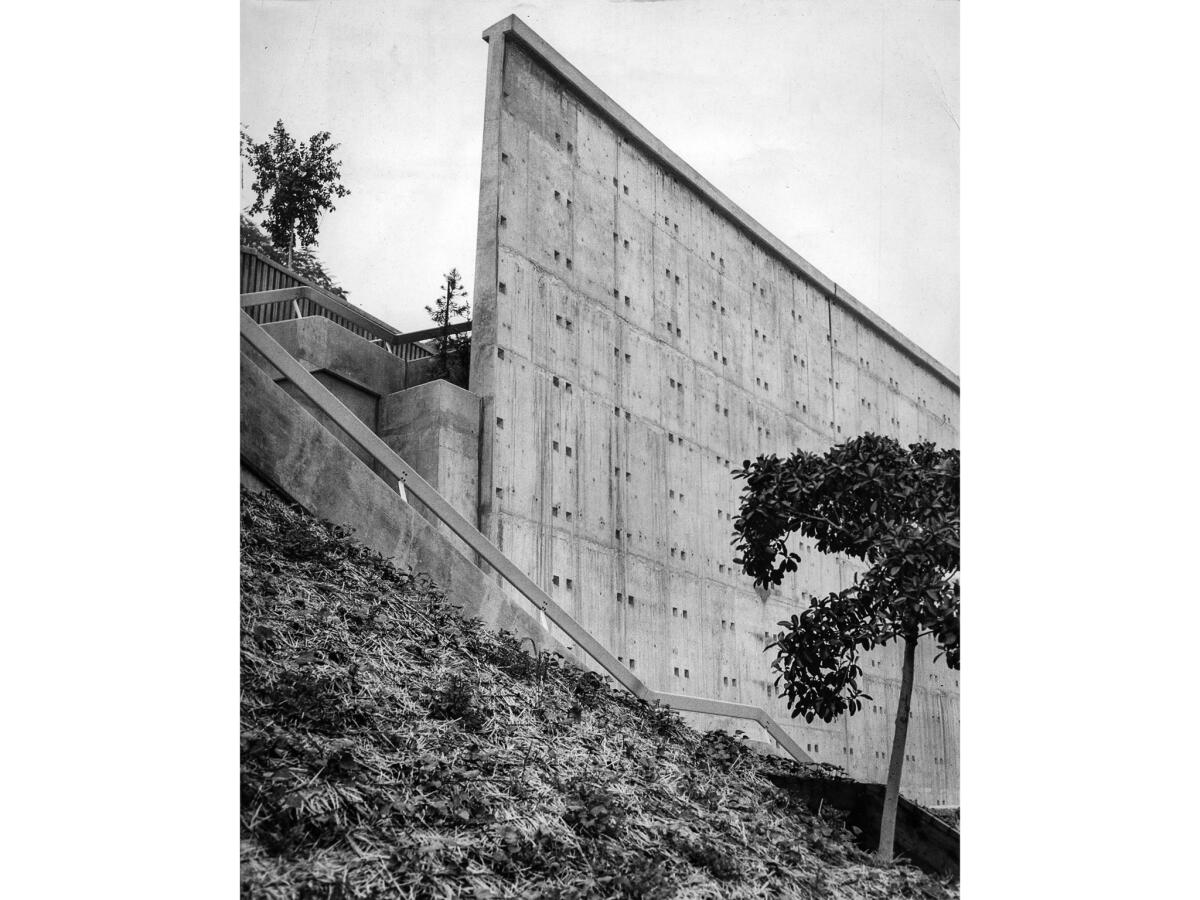
The photo above â of a blank wall â appeared in the Dec. 16, 1955, edition of the Los Angeles Times as part of the "Know Your City" photography series. The original caption reported:
âKnow Your City, No. 32 â When we said we wouldnât trick you we fibbed. Because this is pretty tricky. Looks like an unfinished wall. But it isnât. This is part of a memorial. Can you guess what and where?
âAnswer: This is the Hill Street approach to the Board of Educationâs headquarters atop Ft. Moore Hill. Actually, it is part of the walled memorial dedicated to âthe pioneer leaders of Los Angeles.ââ
The post was originally published on Aug. 18, 2016.
